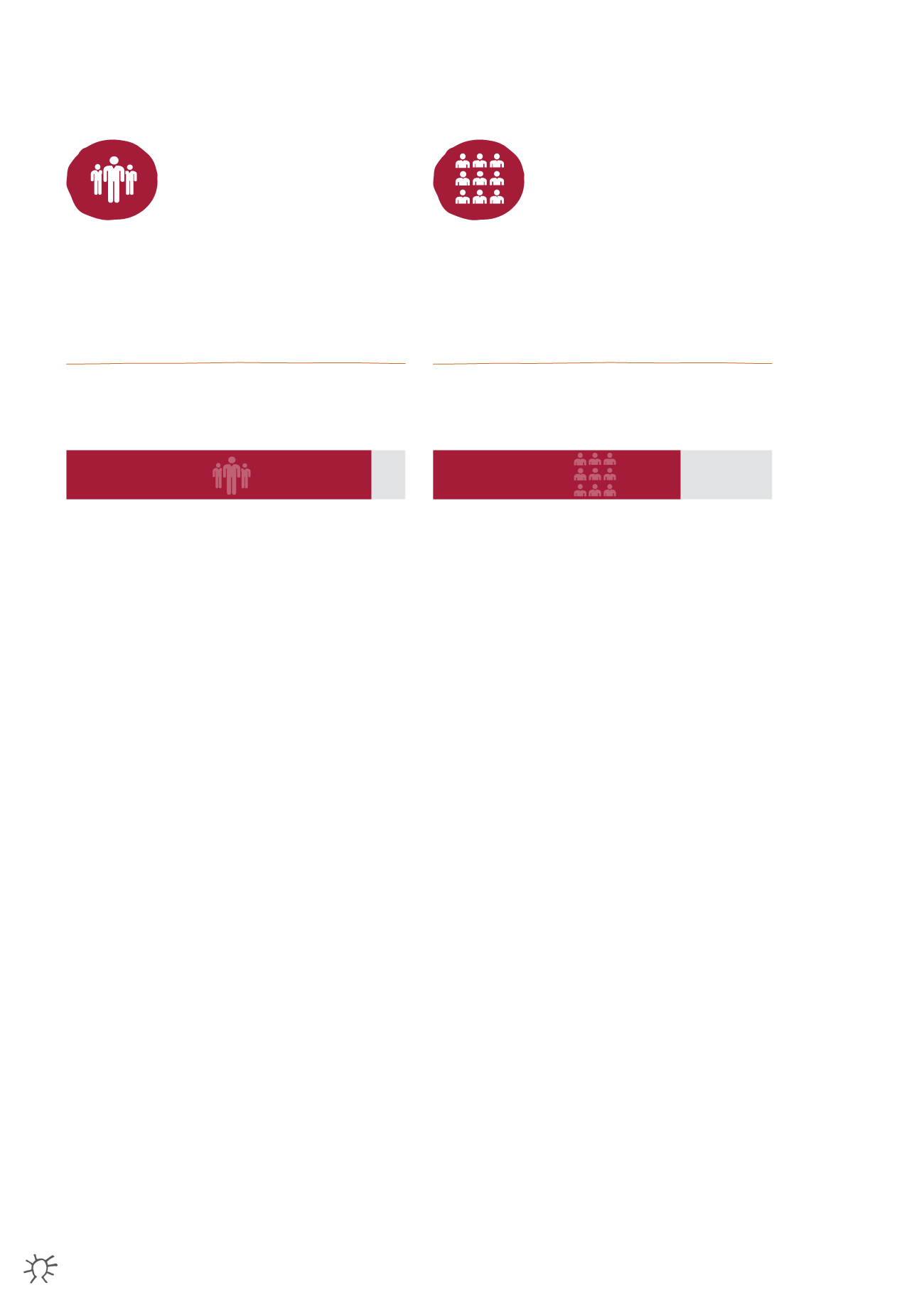

Shared culture
Intangible but powerful, the set of common
values called ‘shared culture’ is what binds
people and programs together in a business
that knows which direction it’s headed in.
When KPMG looked at Jawun’s role in
strengthening organisational capacity, they found
that as a result of the partnership with Jawun:
of organisations reported an uplift in shared culture
90%
>
SOURCE: KPMG (2015),
IMPACT EVALUATION OF JAWUN
, EXECUTIVE
SUMMARY, P. 3.
Dhimurru Aboriginal Corporation
Dhimurru Aboriginal Corporation had a vision
of a work health and safety (WHS) strategy that
integrated Indigenous (Yol
ŋ
u) and non-Indigenous
(Ngapaki) cultures. Safe Work Australia’s Peta Miller
brought 35 years of WHS experience when she
immersed herself in the working lives of Dhimurru
rangers to co-develop standard operating procedures
for key risks—ones that met national WHS standards
as well as three key Yol
ŋ
u concepts:
raypirri
(disciplined),
djäka
(careful) and
ralpa
(committed).
One example was a Dhimurru version of the Globally
Harmonized System of Classification and Labelling
of Chemicals that used locally relevant symbols for
Yol
ŋ
u employees. Standard operating procedures
were also made for wildlife and machinery risks faced
by rangers in the field. As a practical demonstration
of ‘two-way management’, the Dhimurru WHS
strategy featured in a film called ‘Yol
ŋ
u and Ngapaki:
Getting the WHS balance right’, which screened at
the 2016 National Safety Convention of the Safety
Institute of Australia.
Dhimurru facilitator Paul Augustin said, ‘Through
understanding and mutual respect, Peta put
Dhimurru on track to be a safer, healthier workplace’.
Ŋ
ilmurru bukmak djäka wä
ŋ
awu
All of us together looking after country.
Staffing
With people absolutely key to success, ‘staffing’
covers the quality, quantity and management
of an organisation’s people at all levels, from
commanders to foot soldiers.
When KPMG looked at Jawun’s role in
strengthening organisational capacity, they found
that as a result of the partnership with Jawun:
organisations reported an uplift in staffing
73%
>
SOURCE: KPMG (2015),
IMPACT EVALUATION OF JAWUN
, EXECUTIVE
SUMMARY, P. 3.
Western Desert Dialysis
Western Desert Dialysis was set up with community
funds to allow elderly Indigenous people to be
treated ‘on country’ for renal disease. When it
suffered a critical shortage of dialysis nurses for
remote clinics in the Western Desert, KPMG human
resources expert David Broughton was brought in
to assist. Before he left, eight long-term nurses had
been hired and more were on standby. That was
enough to bring Western Desert Dialysis back on
track, save thousands in agency costs, and avoid the
cost of training casual staff to fill gaps. David also left
the organisation a low-cost, low-labour HR strategy
for finding and keeping quality nurses.
CEO Sarah Brown said, ‘The immediate impact is that
we will be able to keep our dialysis clinics open. And
we now have a comprehensive recruitment plan for
the future, and have learned what will help us.’
30 JAWUN
2017 LEARNINGS AND INSIGHTS


















